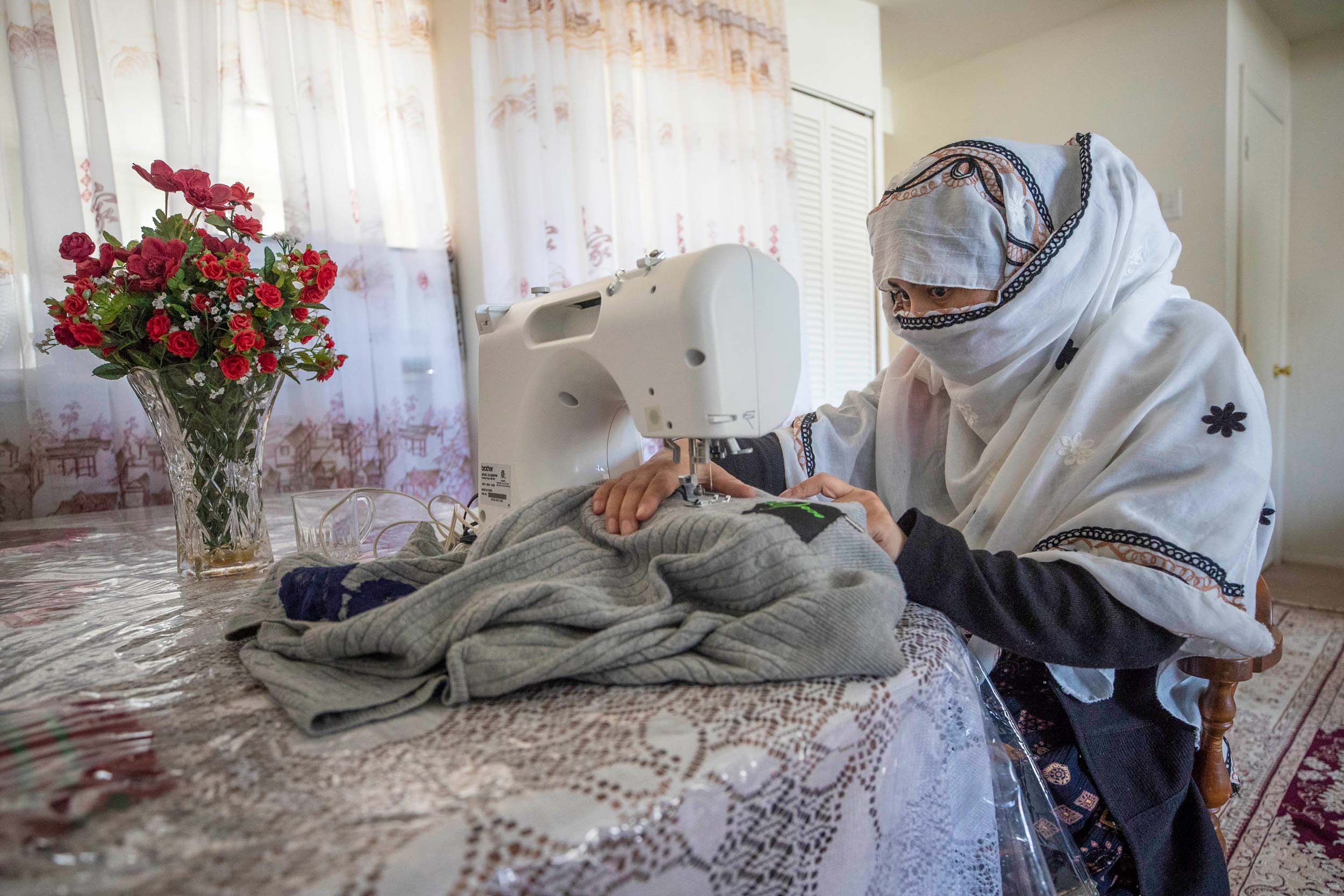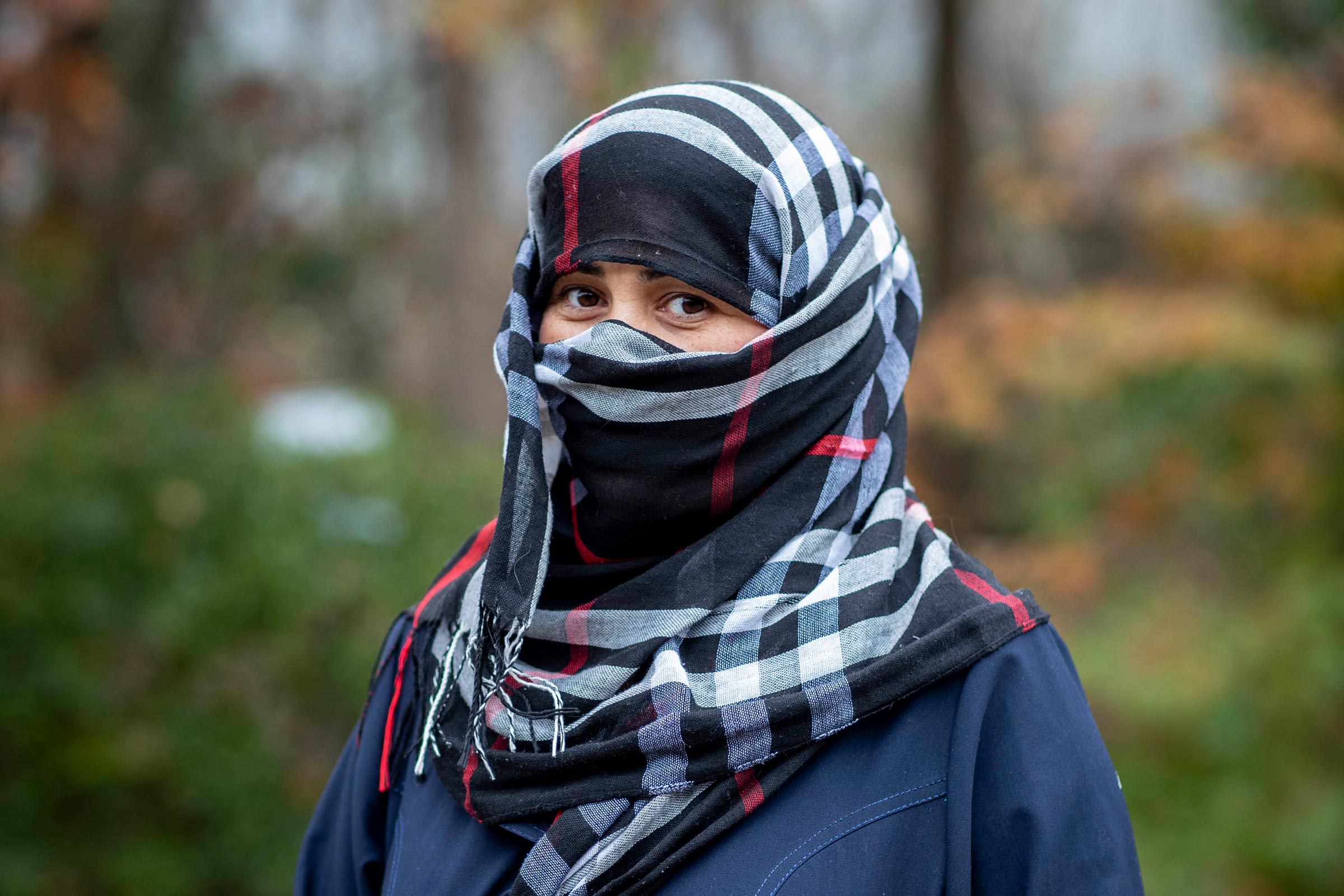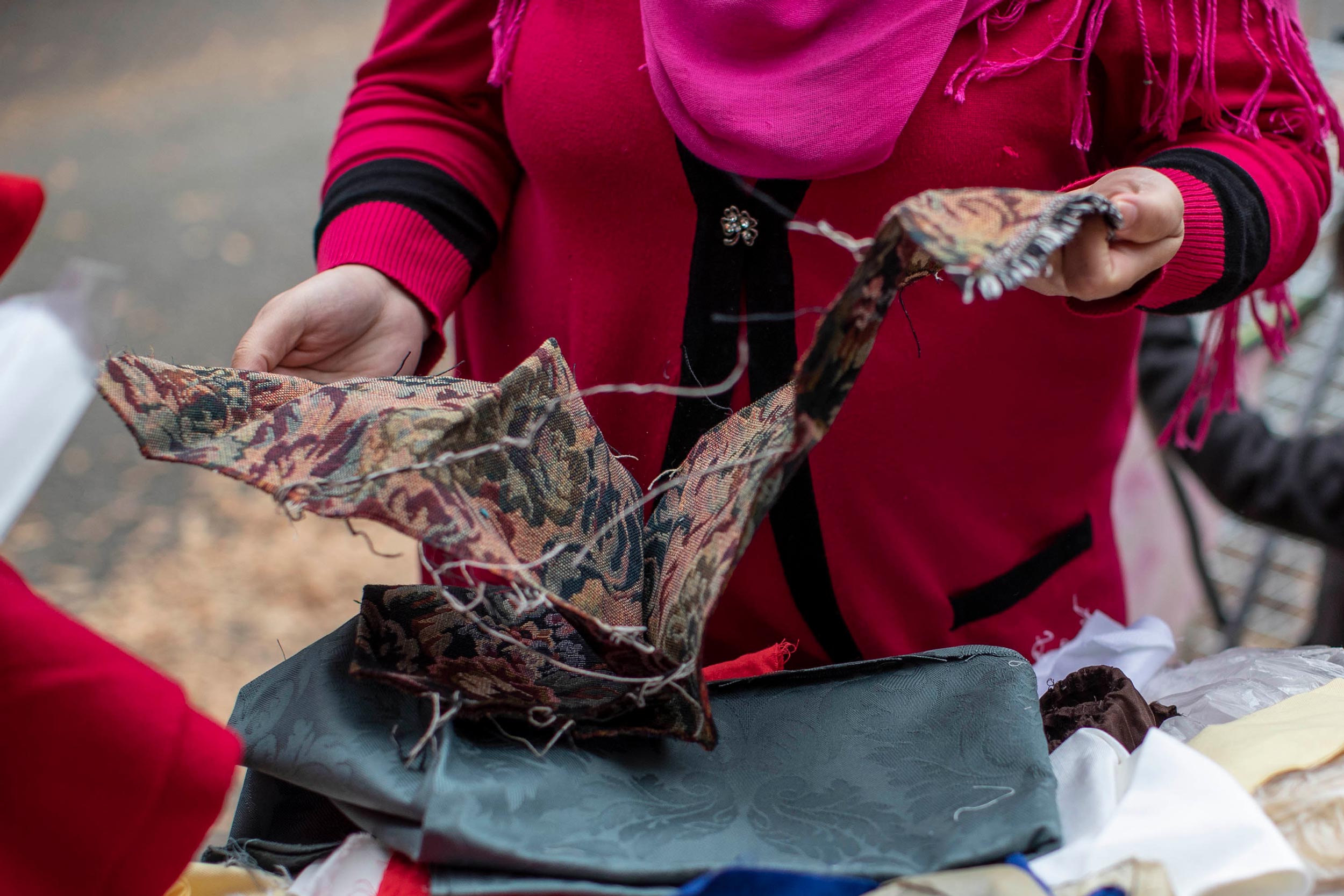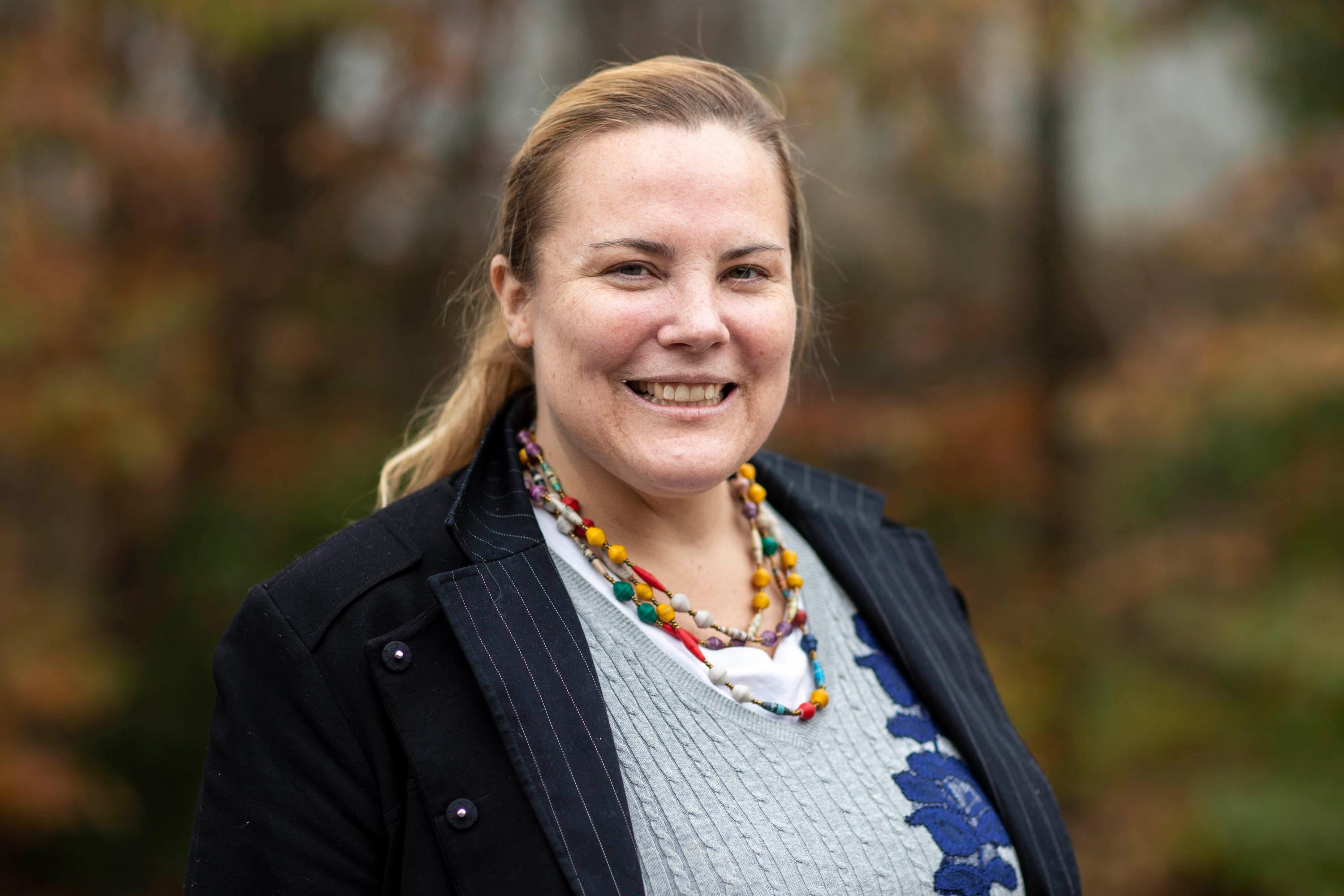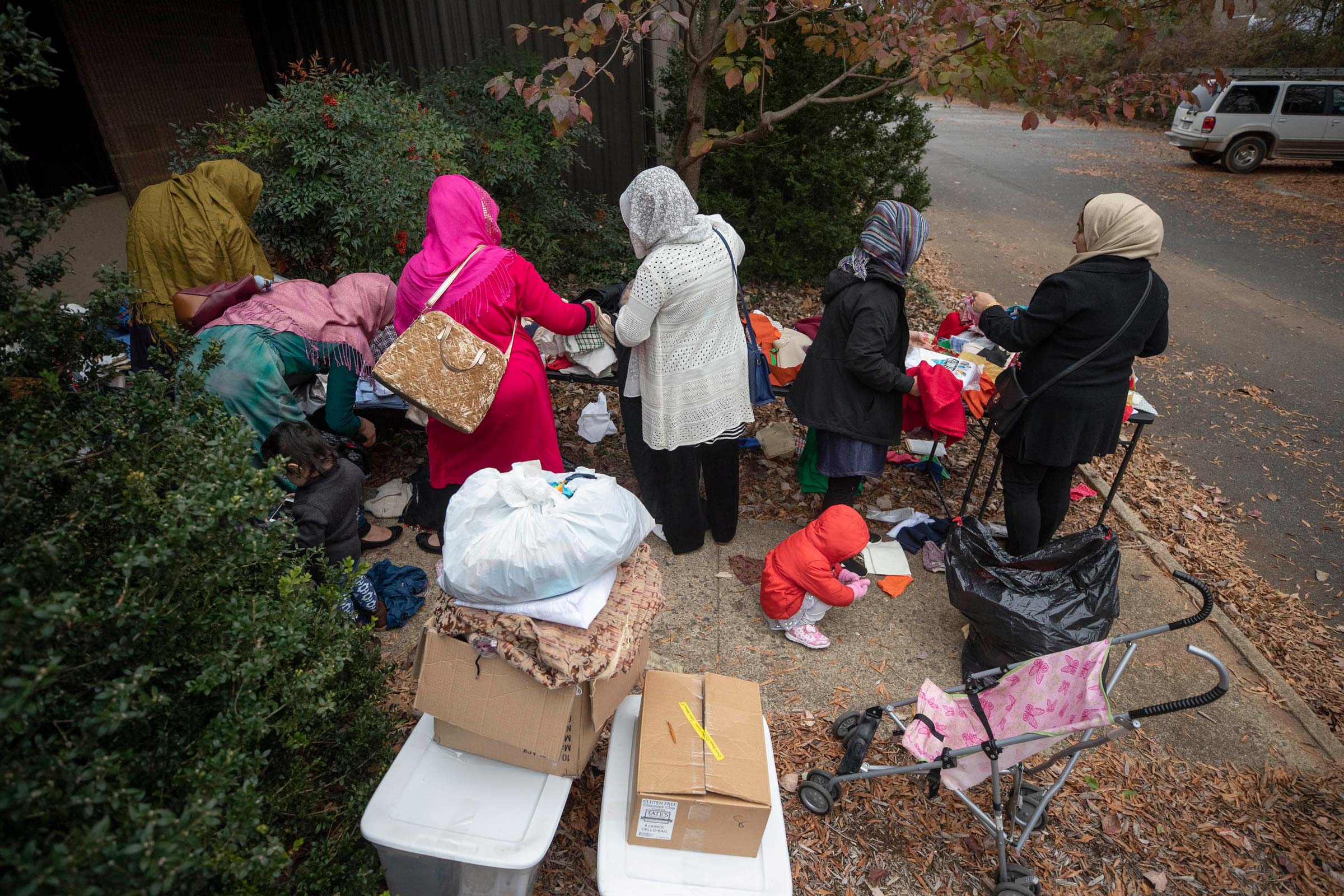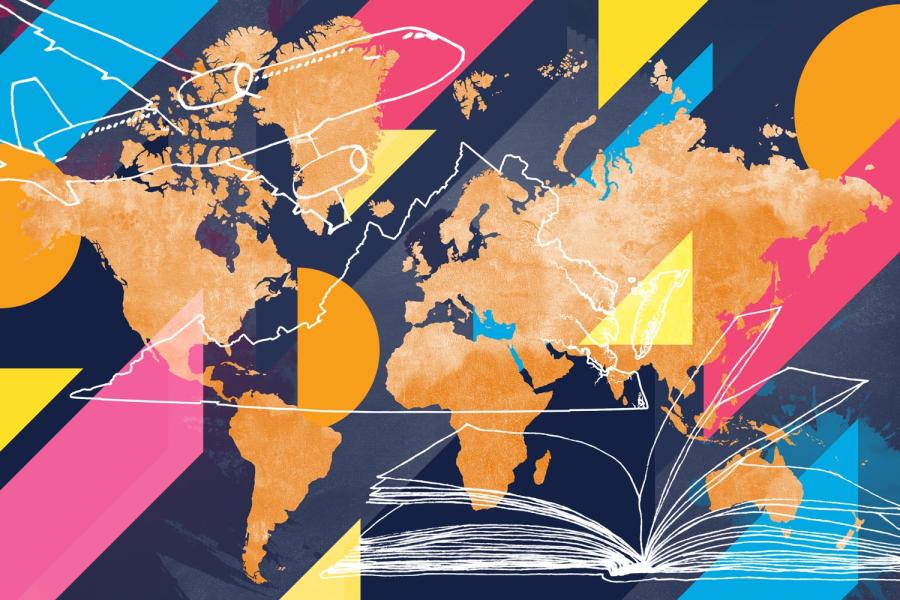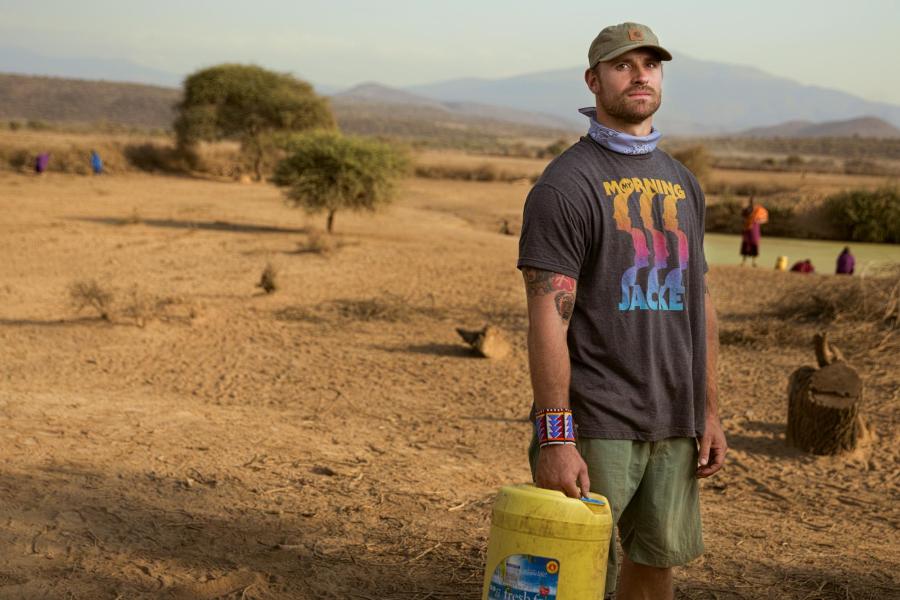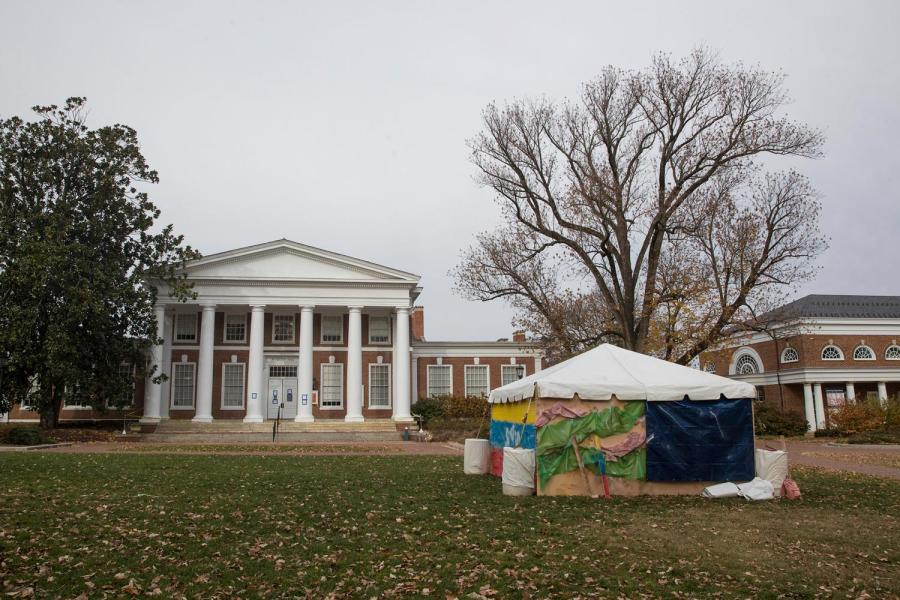The enterprise launched last April by chance. That spring, Cassady had decided to donate some huge rolls of fabric and a closet full of clothes that no longer fit to some local Afghan women she’d learned about from a friend.
Cassady, who earned a degree in economics from UVA in 1997 and a master’s in education (with a specialty in curriculum and instruction) in 2014, invited what she thought would be three women to come to her office space.
“I opened up my doors and there were dozens of women and their families, their children, their husbands, who showed up at my little, tiny commercial facility in downtown Charlottesville,” she said. (Cassady, who also tutors Chinese students online, rents the space because she does not have a good internet connection at home.)
Cassady had planned to personally up-cycle her clothes. “Given what’s happening to our environment, I wanted to really start making a difference,” she said, adding, “there are 9 to 14 trillion tons of clothing and apparel deposited into landfills every year.”
Looking at the crowd that had assembled in front of her office, Cassady saw a skilled crew ready and willing to join in her effort. “I was giving clothes so they could earn money, so they would have income, because many of these women, they are the sole source of income right now,” she said.
The Super Sewing Shop was born.
One Good Turn
The Super Sewing Shop accomplishes several things. It eases clothing waste, supports local refugee families by helping them support themselves. And it offers this: “I want it to be the first, all-Muslim-female, Sharia law-based business in Central Virginia, if not the state of Virginia and quite possibly, America,” Cassady said. (As a fourth-year student in 1996, she wrote her thesis on Sharia banking. Koranic law forbids paying or receiving interest. “I will never forget, I had Professor Ken Elzinga as my adviser and his notes in the margin saying ‘fascinating topic.’”)
“We do ready-to-wear apparel art,” she said. “All of the women were either seamstresses or tailors in their native Afghanistan villages. They are all Special Immigration Visa refugees,” who acted as interpreters or were medical personnel who facilitated American military needs.
Cyber Monday
In August and September, Cassady and members of The Super Sewing Shop hosted a pop-up shop at the Shops at Stonefield called “Eco Chic Boutique.” Now, just in time for Cyber Monday, many of the 950-plus pieces the women have created will be uploaded online ready for sale.
And there is more to come. “The game plan is, by the end of the first quarter of 2019, the women will be their own independent business,” Cassady said. “They will be operating as independent contractors, operating and utilizing their own business. That way people who, say, purchased a pair of jeans from a particular artisan can continue to communicate and purchase from that particular artisan.”
Sitting in her comfortable living room recently after serving hot green tea, nuts and dried fruit, Saleha explained why she has stepped up to succeed Cassady as the leader of The Super Sewing Shop. Speaking through an interpreter, who also happens to be her brother-in-law, she said, “I am a tailor. It is my position. I know about everything, the sewing, the designing. I can make any kind of tailored thing,” she said.
